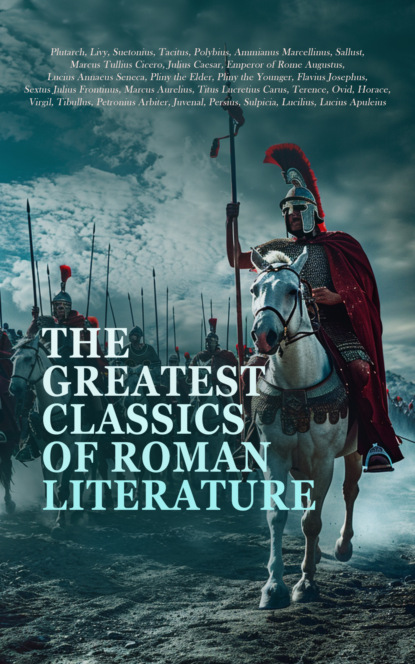Volume 5250 pages
0+
The Greatest Classics of Roman Literature
About the book
The Greatest Classics of Roman Literature masterfully curates an expansive array of works that span the vast chronological and stylistic spectrum of Roman literary heritage. Moving seamlessly from the stoic reflections of Marcus Aurelius to the satirical sharpness of Juvenal, this collection provides an unparalleled immersion into the intellectual and cultural milieus of Ancient Rome. The anthology is meticulously assembled to highlight the diversity of genres and themes that characterized Roman literature—from epic poetry and philosophical treatises to historical narratives and personal letters—offering readers a multifaceted understanding of the ancient world through its most poignant voices. Notable pieces include eloquent speeches, perceptive historical accounts, and scintillating works of fiction that collectively underscore the complexity and richness of Roman thought and imagination. The compendium features an illustrious roster of authors, collectively embodying the spectrum of Roman society and intellect. From the military conquests of Julius Caesar to the philosophical musings of Seneca, these literary titans were not just chroniclers of their times but also shapers of the literary and cultural paradigms of their era. Many of these writers were pivotal figures within historical and literary movements, such as the Silver Age of Latin literature, and their works resonated with the sociopolitical landscapes they depicted. The anthology also spotlights lesser-known voices like Sulpicia, whose contributions add a necessary richness and diversity to the Roman literary canon. Together, these authors provide invaluable insights into the thought processes, societal values, and artistic expressions of Ancient Rome. For those looking to embark on a profound journey through the annals of Roman literature, The Greatest Classics of Roman Literature is an indispensable volume. This collection does more than just present historical texts; it fosters a dialogue between the past and present, inviting readers to explore the multiplicity of perspectives that Rome has to offer. This anthology is a treasure trove for both seasoned scholars and newcomers alike, enriching their understanding with its breadth of insights while educating them through the timeless lessons of history, philosophy, and art. A compelling addition to any literary collection, it promises to invigorate the reader's appreciation for the enduring legacy of Roman thought and creativity.
